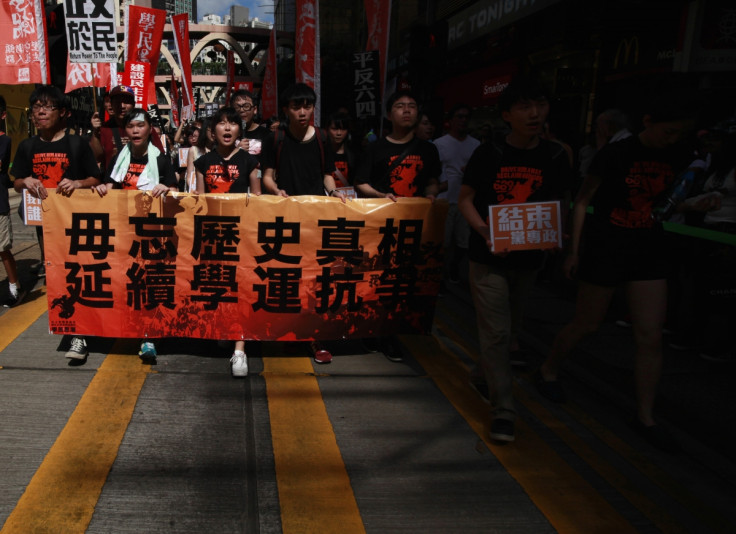Tiananmen Anniversary: China Clamps Partial Crackdown on Google amid Fresh Revelations

China is believed to have imposed a partial crackdown on certain Google services ahead of the anniversary of the Tiananmen Square protests, even as fresh revelations of the army's dissent during the military operation in 1989 have emerged.
As the 25<sup>th anniversary of the crushed pro-democracy demonstration nears, Beijing is said to have blocked several key services including search, image and translation.
"The block is indiscriminate as all Google services in all countries, encrypted or not, are now blocked in China," a blog-post on the GreatFire.org said. It is unclear whether the block is temporary or permanent.
Servers in many Chinese provinces, including Beijing and Yunnan, could not access the homepages of Google – Google.com or Google.hk. The tech giant is yet to make an official statement.
Social media is rife with speculation that the widespread disruption has been carefully planned by the Beijing administration to minimise dissent during the anniversary.
Weibo, the most popular social media platform in China, has already blocked key terms like "Tiananmen" and "25 years ago" prior to the occasion.
General's refusal
Meanwhile, according to fresh revelations citing clandestine documents, one of the top generals refused to obey the then-political leadership's order for a crackdown on rallies.
It has come to light that Major General Xu Qinxian, who was leading the powerful 38<sup>th Group Army a quarter of a century ago, snubbed the Communist Party regarding its use of force against civilian protesters.
"I'd rather be beheaded than be a criminal in the eyes of history," the general, who was immediately arrested, told historian Yang Jisheng.
According to the recently-revealed documents, cited by the New York Times, the army battalions did not fight among themselves, as it was thought earlier, but top army authorities quickly mobilised troops in order to suppress the dissent calls, which began to gradually spread following General Xu's defiance.
The general declined to lead his group of soldiers against the demonstrators but later passed on the orders to other officers, which eventually resulted in his being imprisoned for four years. He is currently believed to be living in a sanatorium for military officials in the northern Chinese province of Hebei.
The Tiananmen Square bloodshed, in which more than 1,000 people were thought to have been massacred, remains one of the delicate topics in Chinese history.
© Copyright IBTimes 2025. All rights reserved.






















